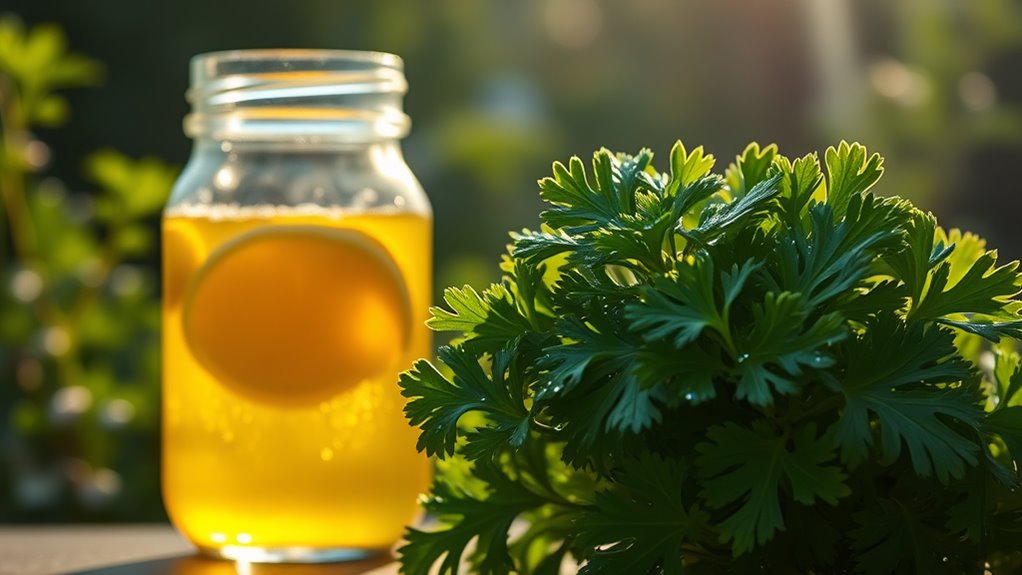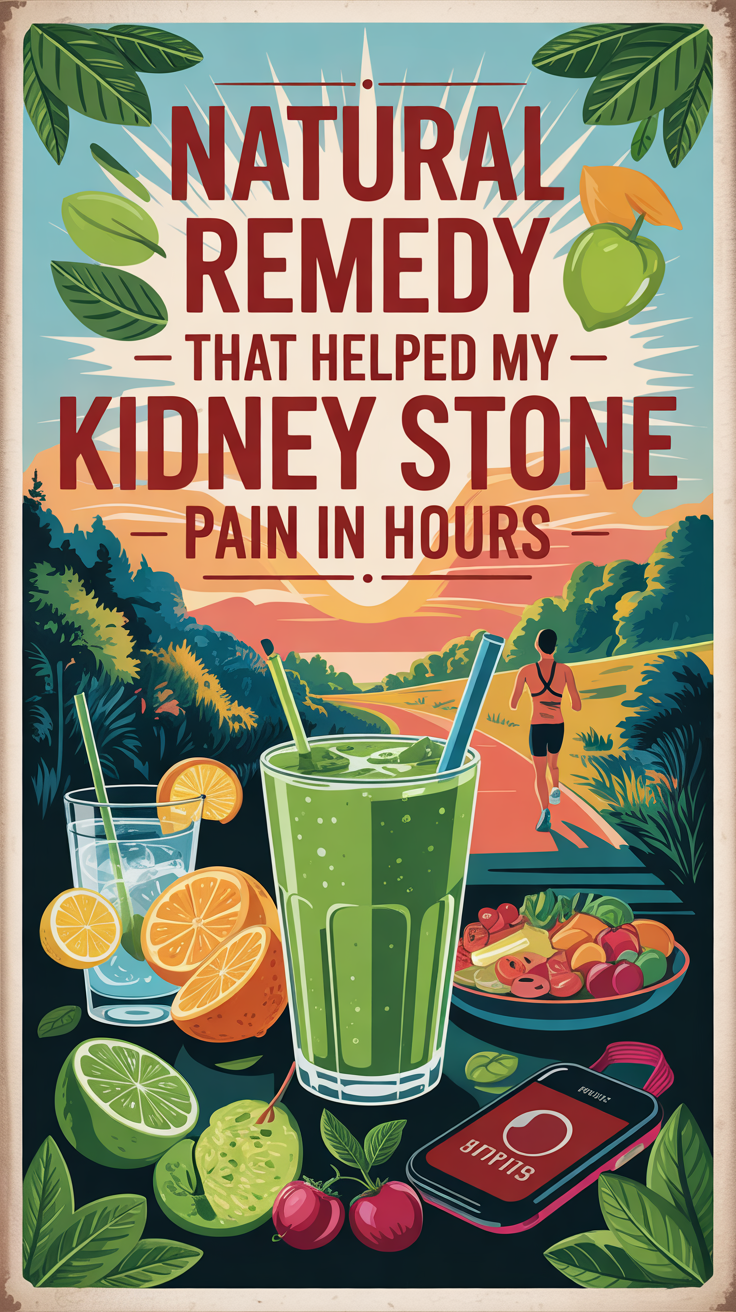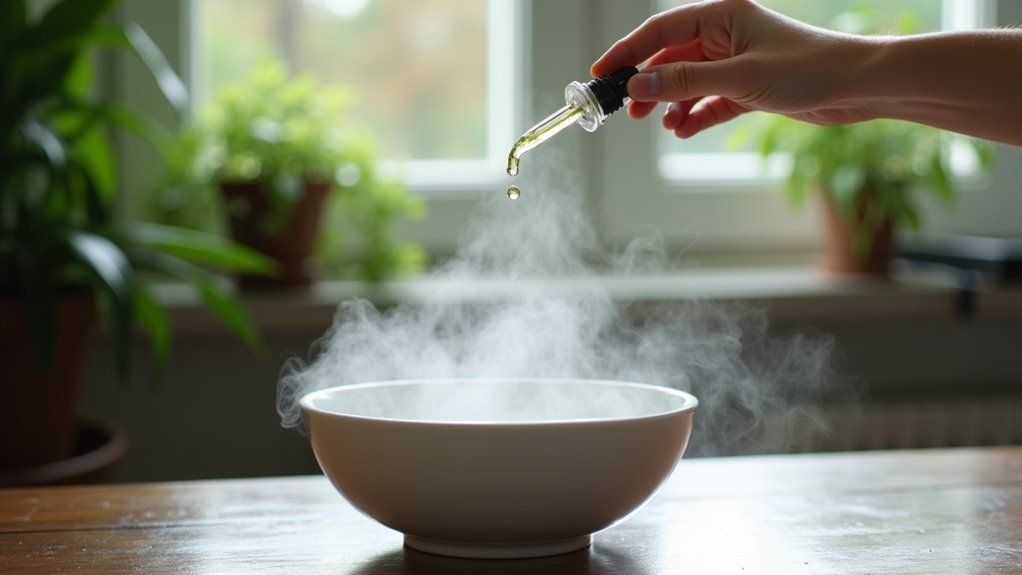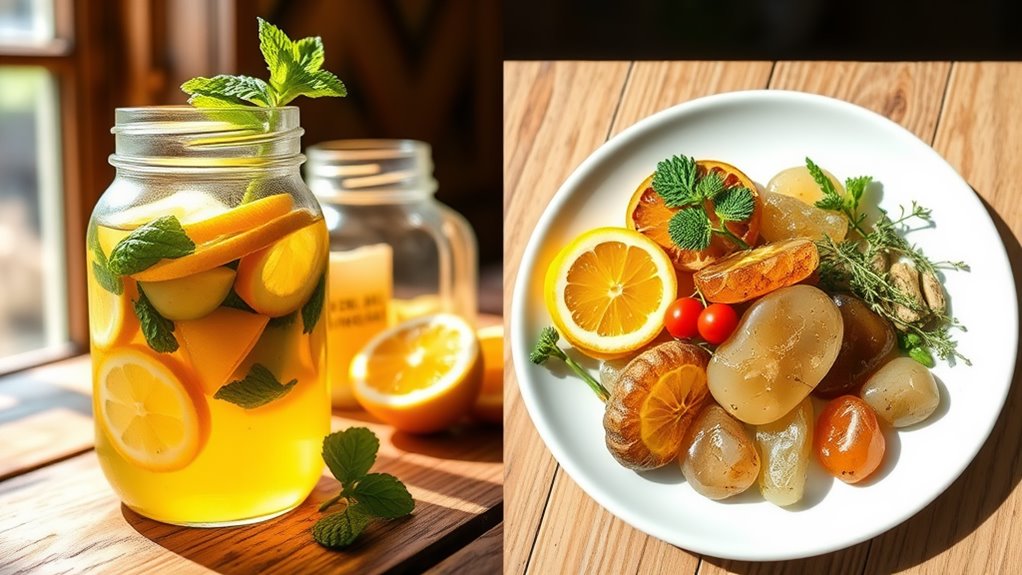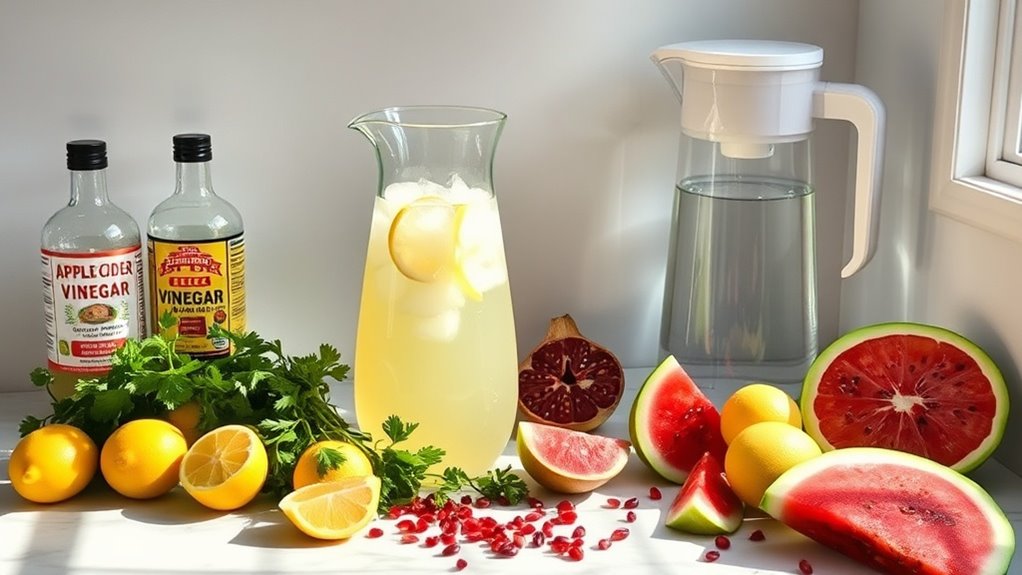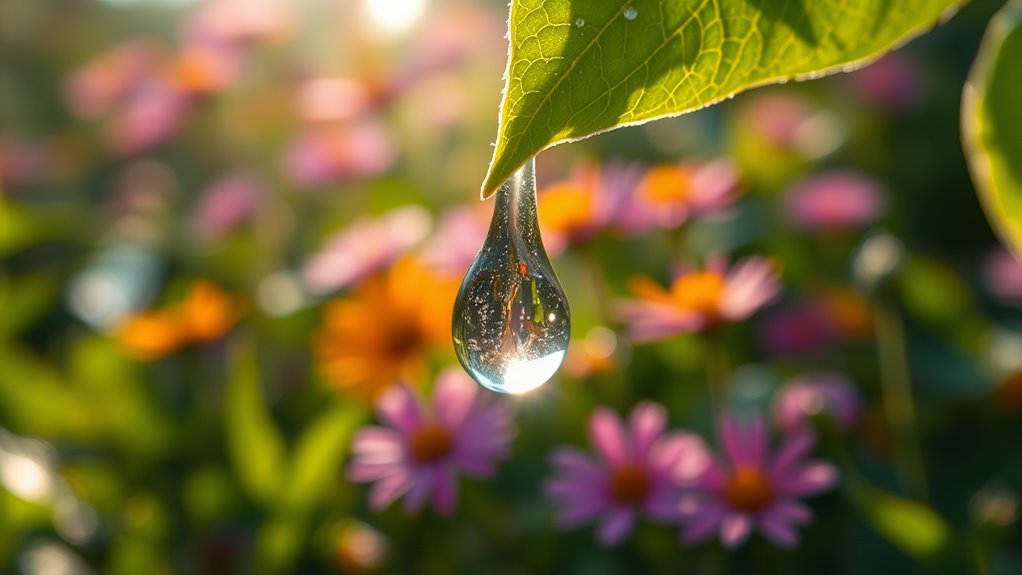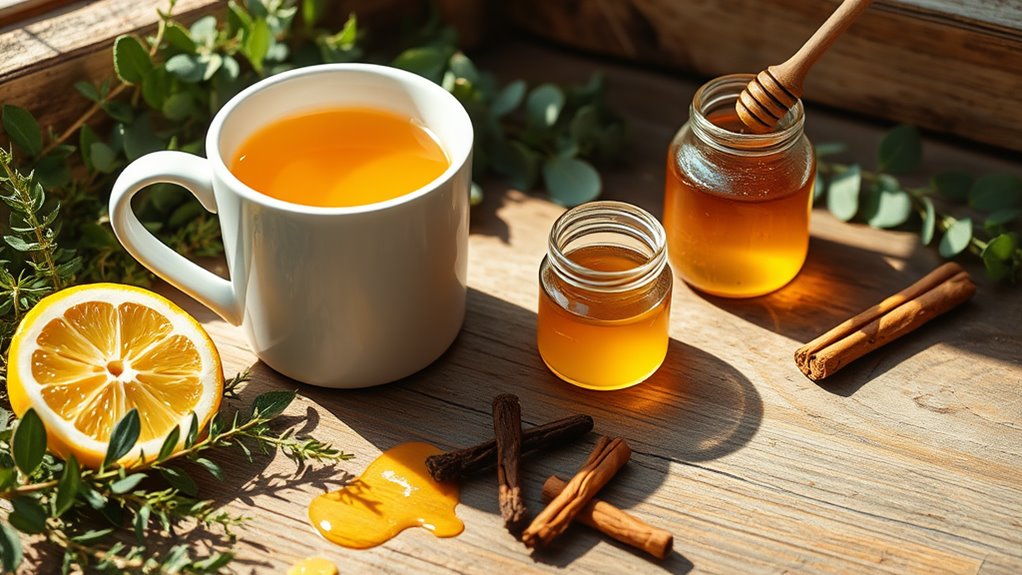Natural Remedy That Helped My Kidney Stone Pain in Hours
To relieve kidney stone pain quickly, heat therapy is effective—try using a heating pad or warm bath. Stay hydrated; drink lemon-infused water to help alkalize your urine and aid stone passage. Herbal remedies, like ginger or basil juice, can also soothe spasms and support kidney function. Combining these methods may provide rapid relief from discomfort. If you want to learn more about managing kidney stone pain and prevention strategies, there’s plenty more to explore.
My Personal Kidney Stone Experience
Dealing with kidney stones is a tough experience, and I can still recall the moment I first felt that sharp, excruciating pain. In those desperate hours, I turned to various kidney stone remedies for relief. Using a heating pad eased my discomfort, while drinking plenty of water helped me pass that small stone. I incorporated lemon juice into my diet for its citrate benefits and tried apple cider vinegar to dissolve stones. Increased water intake can expedite kidney stone passage, making it a crucial part of my strategy. Not only did these changes provide temporary relief, but I also found that high sodium levels in my diet contributed to the formation of stones. With dietary adjustments, like reducing sodium and embracing plant-based proteins, I felt empowered to tackle those painful moments and regain control over my health.
Understanding Kidney Stones and Pain
Kidney stones aren’t only common but can also lead to agonizing pain that significantly impacts your daily life.
These solid masses form when substances in your urine crystallize, often influenced by low water intake, a high-sodium diet, or genetic predisposition. You might experience severe flank pain, radiating to your abdomen and groin, as spasms in your ureter attempt to expel the stone. Daily hydration can help dilute these substances, reducing the risk of future stone formation.
Symptoms can include blood in urine or nausea, and they often vary based on the stone’s size and location. It is noteworthy that the annual ER visits for stone issues exceed 500,000, highlighting the prevalence and seriousness of this condition.
Understanding these mechanisms is crucial for effective pain management and prevention strategies in the future.
The Natural Remedy That Worked
Finding effective natural remedies for kidney stone pain can significantly impact your comfort and recovery. By focusing on proper hydration techniques, exploring herbal remedies, and employing pain relief methods, you can tackle kidney stones more effectively. Kidney stones can range in size from a grain of sand to a golf ball, making their pain and passage highly variable for different individuals. Up to 36% of kidney stone cases are linked to urinary tract infections, emphasizing the importance of addressing the underlying causes. Let’s uncover some strategies that have worked wonders for many people dealing with this painful condition.
Effective Hydration Techniques
When it comes to alleviating kidney stone pain, effective hydration techniques can be your best ally. Prioritizing fluid intake helps flush out stones and prevents future ones. Here are some essential tips:
- Aim for 3 liters of water daily for optimal kidney health. Ensuring proper hydration can also significantly reduce your risk of kidney stones.
- Incorporate lemon-infused water to alkalize urine and reduce stone risk.
- Sip consistently throughout the day for steady urine flow.
- Monitor urine color; pale yellow indicates adequate hydration.
Herbal Remedies Explained
Herbal remedies offer a natural approach to managing kidney stone discomfort, drawing on centuries of traditional use and emerging scientific support. Goldenrod and gravel root can help dissolve stones, while basil juice may support kidney function by lowering uric acid. Ayurvedic herb Varuna reduces calcium oxalate crystal formation, and black cumin acts as a diuretic. For soothing effects, marshmallow root and corn silk protect the urinary tract lining. Additionally, increased hydration is essential for kidney health as it helps dilute stone-forming substances in urine. Combining ingredients, like a lemon-olive oil mixture, offers added benefits. With these herbs, you can find effective options to help alleviate kidney stone pain and promote easier stone passage.
Pain Relief Methods
Several effective pain relief methods can help you manage kidney stone discomfort naturally.
Consider incorporating these strategies into your routine:
- Water Intake: Hydration helps flush out stones and reduce pain.
- Heat Therapy: Use a heating pad to relax muscles and improve blood flow.
- Lemon Juice: Drink lemon juice; its citric acid can alleviate discomfort.
- Dietary Adjustments: Opt for a balanced diet to prevent future stones.
Hydration Techniques to Manage Pain
Hydration plays a crucial role in managing kidney stone pain effectively. Aim for over 3 liters daily—about 13 cups—to help flush out stones and prevent painful urinary stasis.
For immediate relief, sip warm fluids to relax ureteral muscles; consider adding lemon water, which helps inhibit stone formation.
Stay hydrated during pain episodes by drinking electrolyte-enhanced water or coconut water.
Keep track of your output to ensure you’re getting at least 2 liters of urine daily.
If you experience pain escalation, ensure hydration protocols are in place and consult a physician if symptoms worsen.
Your hydration strategies can make a significant difference, as proper hydration can help reduce the risk of stone formation and alleviate symptoms.
The Role of Diet in Kidney Stone Prevention
Here are some key dietary considerations:
- Limit sodium intake to reduce urinary concentration.
- Consume calcium-rich foods to help bind oxalate in your intestines.
- Reduce animal protein, opting for plant-based sources instead.
- Increase fruits and vegetables to lower urine acidity. Additionally, maintaining hydration is crucial for constipation relief as it supports healthy kidney function.
Herbal and Supplemental Aids
When exploring natural remedies for kidney stone pain, you’ll find that certain herbs and supplements can significantly aid in alleviating discomfort and promoting stone dissolution.
Goldenrod boosts urinary flow, while gravel root targets stones. Lemon juice creates alkaline urine and prevents calcium oxalate formation, and basil juice helps reduce uric acid levels.
For soothing spasms, consider cramp bark or ginger.
Diuretic options like dandelion root and green tea can flush stones, while turmeric and garlic offer anti-inflammatory and antibacterial support. Additionally, using natural remedies like a honey and ginger mixture may reinforce your body’s natural defenses.
Incorporating potassium-rich foods and magnesium citrate may also enhance urine health, but always consult a physician before starting new supplements.
Pain Management Techniques for Immediate Relief
How can you find quick relief from the sharp discomfort of kidney stones?
Start by trying these effective pain management techniques:
- Non-Steroidal Anti-Inflammatory Drugs (NSAIDs) like ibuprofen can alleviate your pain.
- Heat application, such as warm baths or heat packs, relaxes muscles and soothes discomfort.
- Stay hydrated by drinking plenty of water to aid stone passage and reduce pain.
- Alpha blockers can help relax your ureters, making it easier for stones to pass.
Implementing these strategies offers you immediate relief while you manage your kidney stone pain effectively. Additionally, combining hot and cold therapy can enhance your overall pain management approach.
Long-Term Strategies for Kidney Stone Prevention
To effectively prevent kidney stones over the long term, adopting a holistic approach is crucial.
Start by increasing your fluid intake to at least 2 liters daily, diluting urine and minimizing stone-forming minerals.
Engage in regular exercise to maintain a healthy weight and balance your diet with calcium-rich foods while managing sodium and oxalate levels.
Incorporate stress-reduction techniques, like yoga, and ensure consistent sleep patterns.
Monitoring your urine output helps maintain hydration.
Consider citrate supplements and consult healthcare providers for tailored advice.
Regular check-ups can keep your kidney health in check and prevent recurrence effectively. Additionally, maintaining proper hydration is essential as dehydration can exacerbate kidney stone formation.
When to Seek Medical Attention
If you’re experiencing severe pain from kidney stones that over-the-counter medications can’t control, it’s time to seek medical help.
Additionally, symptoms like fever, chills, or cloudy urine may indicate an infection that needs urgent attention.
Don’t ignore these signs, as timely intervention can prevent serious complications.
Severe Pain Levels
When does kidney stone pain warrant a trip to the doctor? You should seek immediate medical attention if you experience:
- Severe pain that doesn’t subside with over-the-counter medication.
- Blood in your urine, indicating potential injury from the stone.
- Persistent vomiting, which can lead to dehydration.
- An inability to urinate or a strong urge but little output.
Severe kidney stone pain can feel as intense as childbirth.
If the pain spikes abruptly, especially when the stone moves through the ureter, don’t hesitate to consult a healthcare professional.
It’s crucial to address complications early for optimal treatment.
Symptoms of Infection
How can you tell if kidney stone pain has led to an infection? Watch for symptoms like fever, chills, and changes in urine. If you notice cloudy or foul-smelling urine, or experience nausea and vomiting, it’s time to seek help. Here’s a quick guide:
| Symptom | Action Needed |
|---|---|
| Fever over 100.4°F | Seek medical attention |
| Cloudy or foul urine | Consult a healthcare provider |
| Nausea and vomiting | Get evaluated |
| Rapid heart rate | Emergency assistance |
| Persistent symptoms | Don’t delay your visit |
Recognizing these signs can help you get timely treatment.
Final Thoughts on Natural Remedies
While exploring natural remedies for kidney stone pain can provide some relief, it’s important to approach these methods with caution.
Remember, not all remedies have clinical backing.
- Stay hydrated to aid passage and prevention.
- Herbal teas may act as diuretics but lack proven efficacy.
- Dietary adjustments, like reducing sodium, are crucial for long-term prevention.
- Don’t delay medical care for serious symptoms.
Ultimately, combining natural approaches with medical advice can offer the best outcome.
Prioritize your health and consult a healthcare professional before relying solely on home remedies.
Your kidneys deserve the best care possible.

